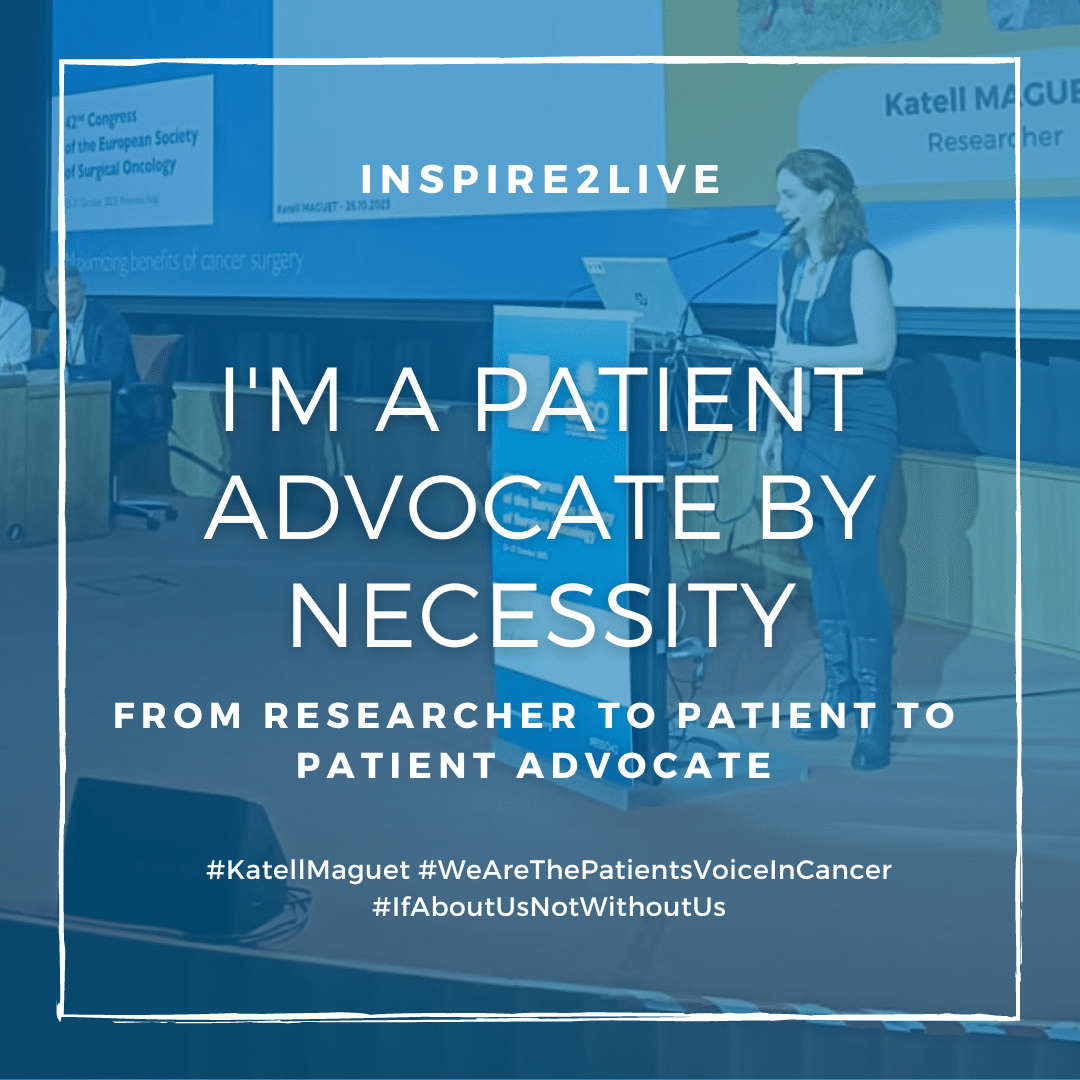In October 2023, I had the incredible opportunity to speak at the European Society of Surgical Oncology congress in Florence. Standing on stage at the ESSO congress, I realized I could become a patient advocate.
I was diagnosed with stage 3 colorectal cancer at 40, in February 2021, in the middle of the Covid pandemic. Just over a year later, in April 2022, I founded a research company called Change Katalyst. The day after founding it, I was diagnosed for the second time with colorectal cancer. To say it changed my plans would be an understatement!
During the summer of 2023, while still recovering from my cancer treatments, I began speaking out on social media to raise awareness about colorectal cancer in young people. Sharing my experiences challenges led to an invitation to speak at the ESSO42 congress in Florence, for the session on quality of life in colorectal cancer.
At the congress, during the opening session, Dr Paul Sugarbaker received a Lifetime Achievement Award for his outstanding work on peritoneal metastases. Thanks to the approaches he has developed over 50 years, the life expectancy of these patients has increased dramatically.
Scheduled to speak the next day, I had second thoughts. As a researcher, I was used to presenting study results, but that would be the first time sharing my personal journey. Who was I to address an assembly of people who save lives every day? I felt like just a dot on their results charts. As a researcher, I knew what that meant. But then I realized my role was to give a voice to patients, to make the link between a statistic and a person.
While in Florence, I attended Inspire2Live’s World campus online meeting for the first time which gave me the inspiration I needed to get up on stage.
During my presentation, I shared my perspective as a young patient, discussing the challenges I encountered during and especially after my cancer treatments, and their impact on my quality of life. I pointed out that surgeons will be seeing more young patients like me, and as these patients live longer, it becomes crucial to consider which treatment options best fit their active lifestyles. From fertility preservation to benefiting from having a stoma, these are essential aspects of care that need attention.
I emphasised my gratitude to the medical team who not only saved my life but also made me feel heard—a collaboration that is vital for patient empowerment.
This experience highlighted the importance of patient advocacy. Empowering patients is crucial, yet it is not always the norm. Throughout the congress, I noticed differences in patient care across Europe, particularly in the patient-surgeon relationship. It appears much more formal in southern Europe compared to the Nordic countries, possibly due to cultural differences.
By attending this congress, I realised that I have a role to play beyond my own story. I can be a patient advocate, ensuring that the patient voice is heard and that care improves for all.
Thus began my career as a patient advocate, from a researcher to a patient to a patient advocate!
Together, we can make a lasting impact on cancer research and patient care.
Kate Maquell
Patient advocate at Inspire2Live

